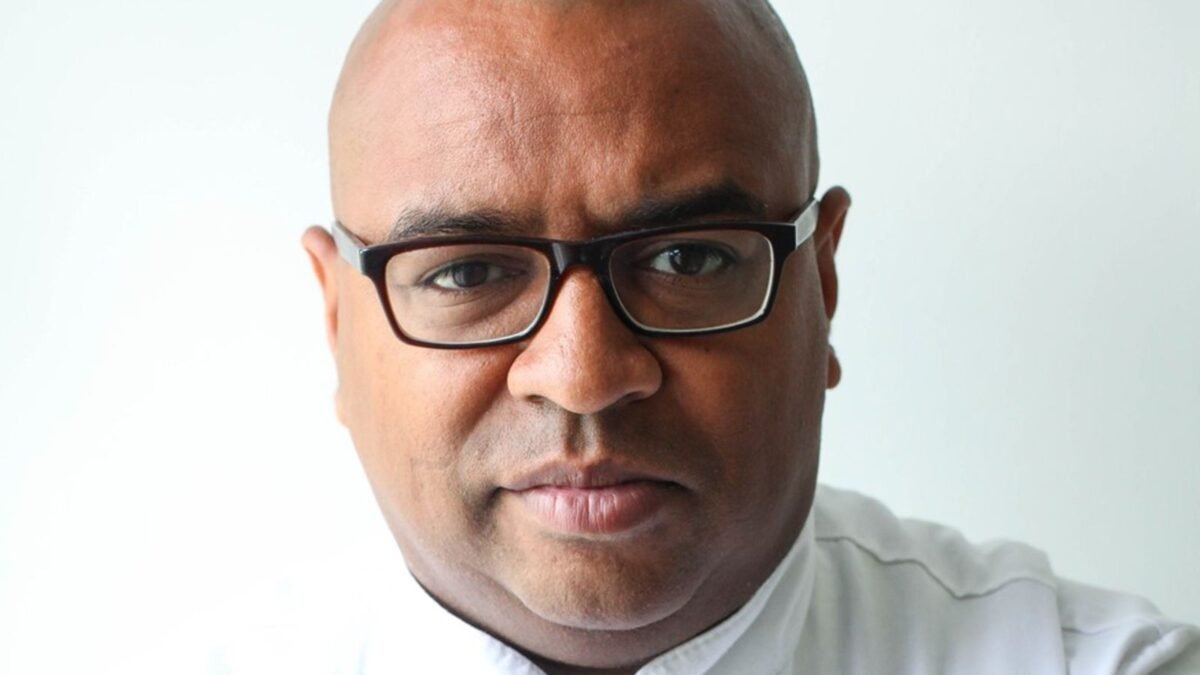Now Reading: Weekend Money: Renowned chef talks about life after being conned out of £300,000 by his own mum | Money News
-
01
Weekend Money: Renowned chef talks about life after being conned out of £300,000 by his own mum | Money News
Weekend Money: Renowned chef talks about life after being conned out of £300,000 by his own mum | Money News

Renowned chef talks about life after being conned out of £300,000 by his own mum
By Jess Sharp, Money live reporter
When Graham Hornigold first heard from his mum, he was delighted, full of “excitement and anticipation”. He had gone more than 40 years without seeing her, having been in foster care from the age of two and then living with his father and stepmother.
So, when she dropped him an email in the middle of the pandemic, it was almost biological instinct that made him reply.
If he had realised that in six months, he would be £300,000 in debt, separated from his wife and wishing his mother was someone else, maybe he would have made a different choice.
The renowned pastry chef and Masterchef: The Professionals judge unveiled his story in the Netflix documentary Con Mum earlier this year.
Since the programme aired, Graham’s life has been a whirlwind as he tried to recover emotionally, mentally and financially from the turmoil his mother Dionne Marie Hanna left behind.
“I was in bits, a real dark place, all alone. Your friends drop away, your family drops away, and nobody really knows what you’re going through,” the 50-year-old told Money.
“It’s really hard to transmit those feelings because nobody can understand it unless they’ve really lived through it.
“You don’t realise until after they have fleeced you or manipulated you beyond your wildest dreams, that you’ve actually left yourself exposed.”
‘There’s nothing really to say to her – is there?’
Hanna presented herself as a wealthy, illegitimate daughter of the sultan of Brunei, initially spoiling Hornigold, and his partner at the time Heather Kaniuk, with expensive gifts – including a Range Rover and a BMW.
She told him that she had just months to live, but as time went on, she began leaving Hornigold and his friends with large bills for hotels, meals and other expenses.
Eventually, she disappeared. The Netflix documentary shows her final phone call with Hornigold, in which she claims to be in Malaysia.
Hornigold told Money that he has not spoken to her since, and he doesn’t wish to.
“All I know is what I have seen in the papers, which is that she was taken [arrested] in Singapore,” he said.
“There is nothing really else to say to her, is there? Thanks for carrying me,” he laughed.
‘Really, really dark place’
The ordeal uprooted Hornigold’s life. His marriage broke down as a result, with his ex-wife and son now living in New Zealand.
“Coming back to an empty house that no longer has your child or your partner in, or your mum, was really tricky. I had to live there for a year afterwards and then clear it to sell it. That was a really, really dark place,” he said.
In a bid to clear the £300,000 of debt he had been left with, he gave back the cars and managed “little by little” to pay some of the money back – with around two-thirds already paid off.
“Some [of the debt] is still sitting here because obviously you still have increased costs, and rent is higher than your old mortgage, and I live by myself,” he said.
“But it’s not about the money, it’s just the emotional damage that’s been done.”
‘My business is suffering’
As a top chef and a successful businessman, Hornigold has found comfort in the kitchen and in his companies – the gourmet doughnut brand Longboys, his patisserie Pretty Sweet and his consultancy Smart Patisserie.
“My work has definitely kept me busy, but that again is one of those coping mechanisms,” Hornigold said.
While battling the issues in his personal life, he has also been trying to continue the success of his businesses in a tough economic climate.
“Hospitality, like most businesses now, are taking a hit,” Hornigold said.
“Ingredient costs have gone up because of import taxes, the availability of goods, and the increased cost of living. There is only so much that people are willing to pay for things.
“My business is suffering today but I still have a roof over my head, I’ve still got a family that loves me, and I’ve still got my reputation.
“Hopefully, we can weather the storm.”
‘Everybody is struggling’
Hornigold’s positivity is infectious. Despite admitting he has a “challenging” life, he said he “always looks for the light” and wants others facing difficult times to do the same.
“I’m from the generation where you just crack on. That’s probably why some of the things have come to pass,” he said.
“I allowed this to happen because of that need for acceptance.
“That’s why we have to talk about mental health as a whole piece. It’s not seen as a weakness any more. You can go out, fully masculine, and still be able to be heard and become healed without any sense of fear or weakness.
“I mean, I’m struggling, but everybody is struggling. I still can’t complain though, can I?
“I mean, I still live a decent life, everybody’s paid, and eventually we’ll get there.”



















































